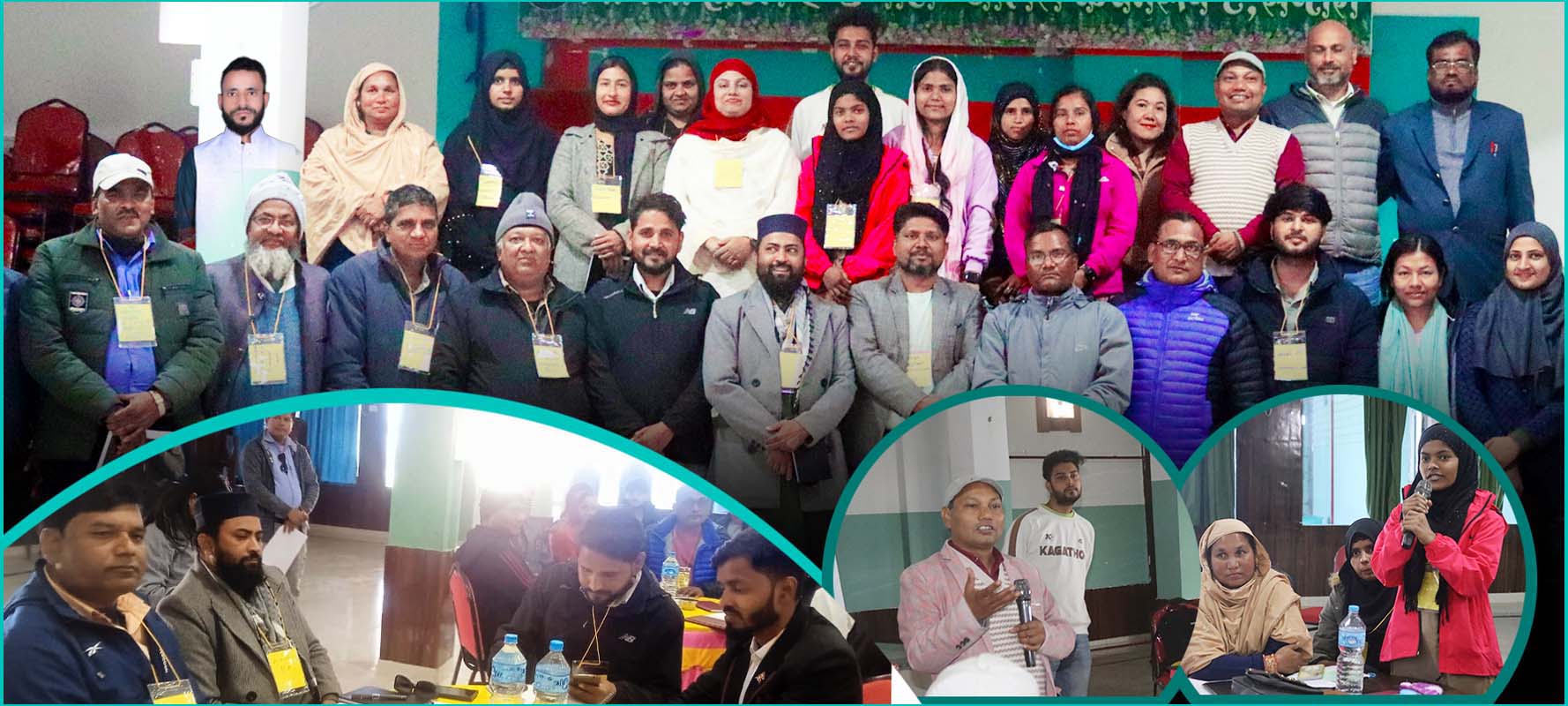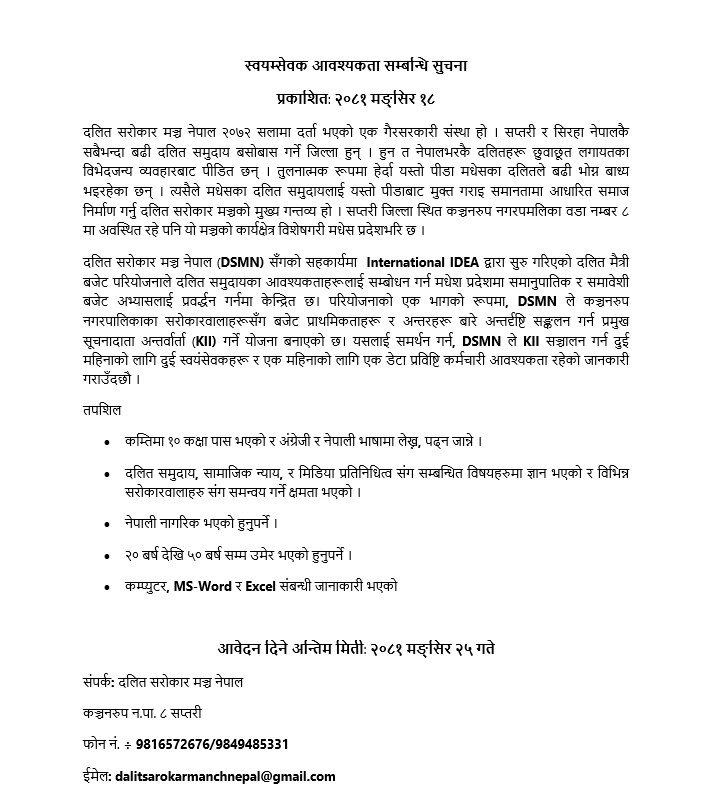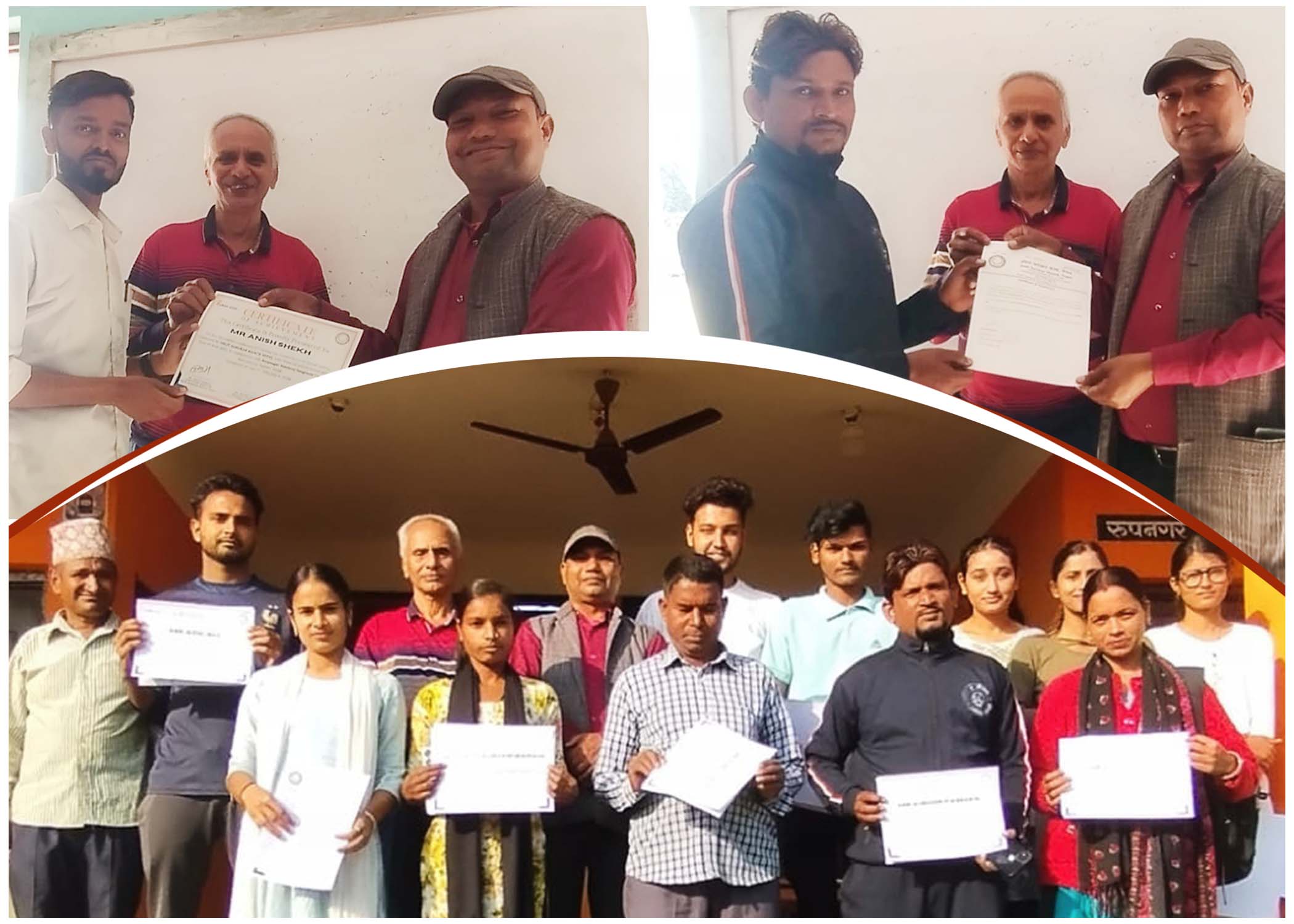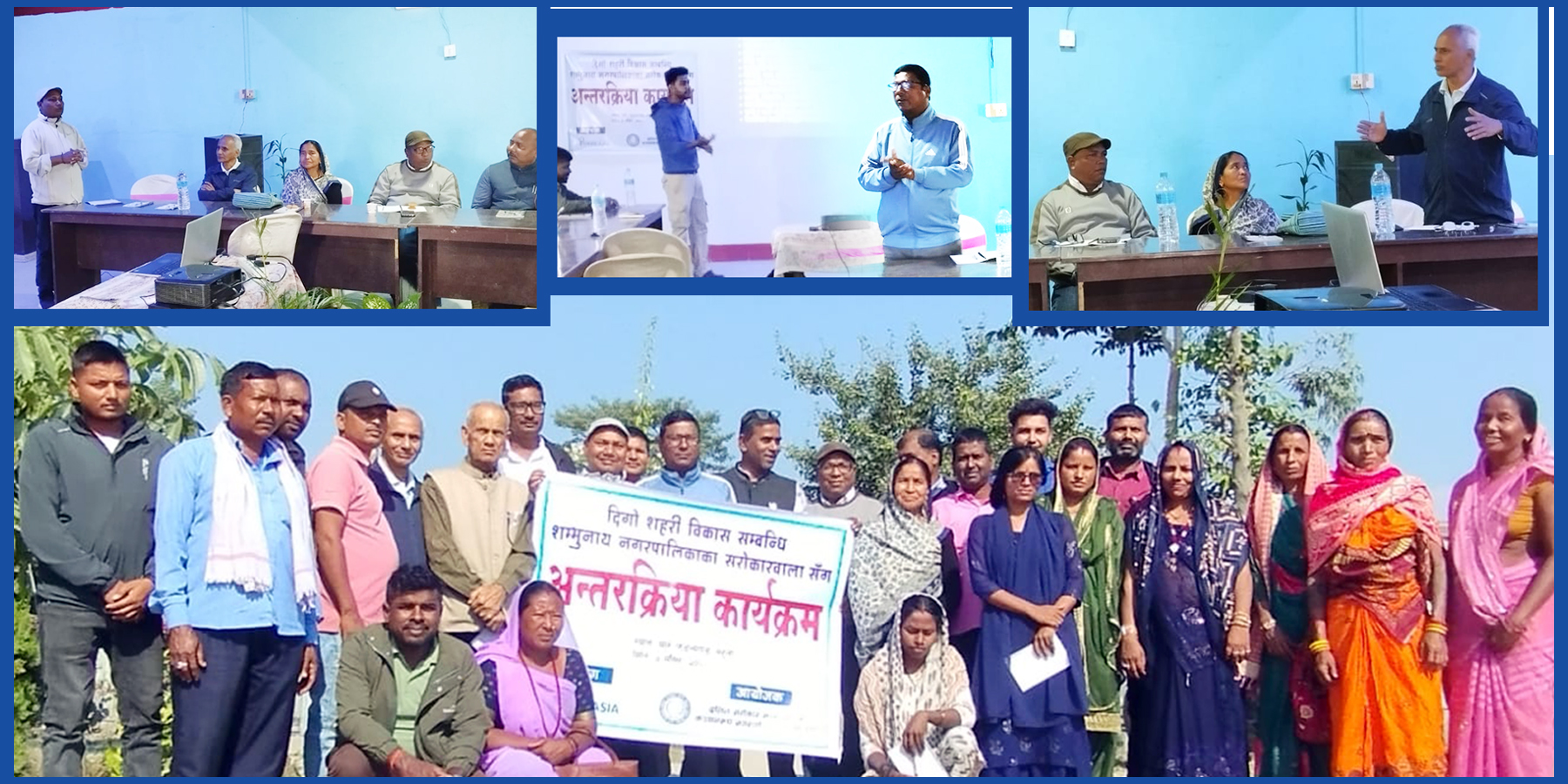.png)
Dalit community urges to increase political access
- 2024/07/23
July 22, Mirchaiya (Siraha)
Vidyanand Chowdhury, Chairman of Chinnamasta Rural Municipality of Saptari and member of the secretariat of Rural Municipality Federation, said that the shortest way to solve the problems faced by the Dalit community is to increase access to politics. He said that no matter how many people show the way, the sufferings of this community will not be solved until politics is used as the main policy of all policies.
Speaking at the 'Dalit Budget, Madhesh State Level Discussion Program' organized by Dalit Sarokar Manch Nepal, Chowdhury admitted that even now the budget has not been allocated proportionately to the Dalit community and said - the weakness has been felt. We will improve it in the future. It is necessary for the leadership of other municipalities to feel this way. He also thanked the organizers for doing such a historic work.
On the occasion of the discussion, Pradeep Yadav, the city head of Hanspur Municipality of Dhanusha, mentioned that the federal government should send the budget on the condition that it directly benefits the Dalit community. Yadav, who is also the provincial coordinator of the municipal association, informed that he will raise this matter in the association as well and added that the Dalit community should not only be given skills, after teaching the skills, the necessary capital to put them into practice should also be provided in the form of grants. Otherwise, there is no possibility for people from Dalit community to participate in vocational training etc. due to lack of finances.
The participants of the program complained that the municipalities do not participate in the planning and budgeting process of the Dalit community, and even if they do, they are not heard. They mentioned that their voices could not be raised because the Dalit community representatives in the executive body were chosen in such a way that they could not argue, could not speak against the leadership and could not even make any demands.
In the same way, the participants said that when the municipalities make plans, people from the Dalit community should be careful, they should attend as much as possible and pressurize their demands to be included, they should keep an eye on whether the demands have reached the municipality or not, see whether the budget has been met even after the plan has reached there, and warn them if not, and if the budget is met, such budget will be passed to the Dalits. He expressed the view that this discussion has opened his eyes about the fact that the work that directly benefits the community should be looked at whether or not it has been utilized to the maximum extent.
During that, journalist/researcher Raghunath Lamichhane presented the findings of the study on 'Dalit Budget in Madhesh Municipality'. During that time, Lamichhane mentioned that the Madhesh state government should introduce the Dalit Empowerment Act and adopt an inclusive/proportional behavior in every body of the state, but it was not reflected in that behavior. He said that the budget is not allocated on the basis of population, even if allocated, very little is allocated and the Dalit community is not united, the leadership of the municipalities is taking advantage of it. In addition, Lamichhane made another presentation about the formation of the Local Caste Discrimination and Untouchability Monitoring Committee, its effectiveness and the measures to be taken to make it active, which should be formed by law in each municipality of Madhesh Province.
Besides, Executive Director of Dalit Sarokar Manch Nepal, Bhola Paswan, gave a presentation on the analysis of the budget of the Madhesh state government and the budget of the Dalit Development Committee, which will directly benefit the Dalit community. He said that the report will be finalized by incorporating the suggestions of the participants in all these presentations.
Dr. Vijay Prasad Mishra discussed the actions to be taken and the strategies to be adopted by the Dalit community in the coming days to get rid of the problems including bias in budget allocation. During that, the participants made a conclusion through group discussion and presented it.
Bhola Paswan, the organizer of the program, said that the Dalit community was completely ignored in the plans and construction budgets of the municipalities, so that the Dalit community should move forward unitedly. He said that the purpose of this program is to bring together Dalit executive members, Dalit journalist network officials, Dalit fraternal organizations of the party and Dalit-led civil society officials to create an environment to create strong pressure for solving the problems of the Dalit community.

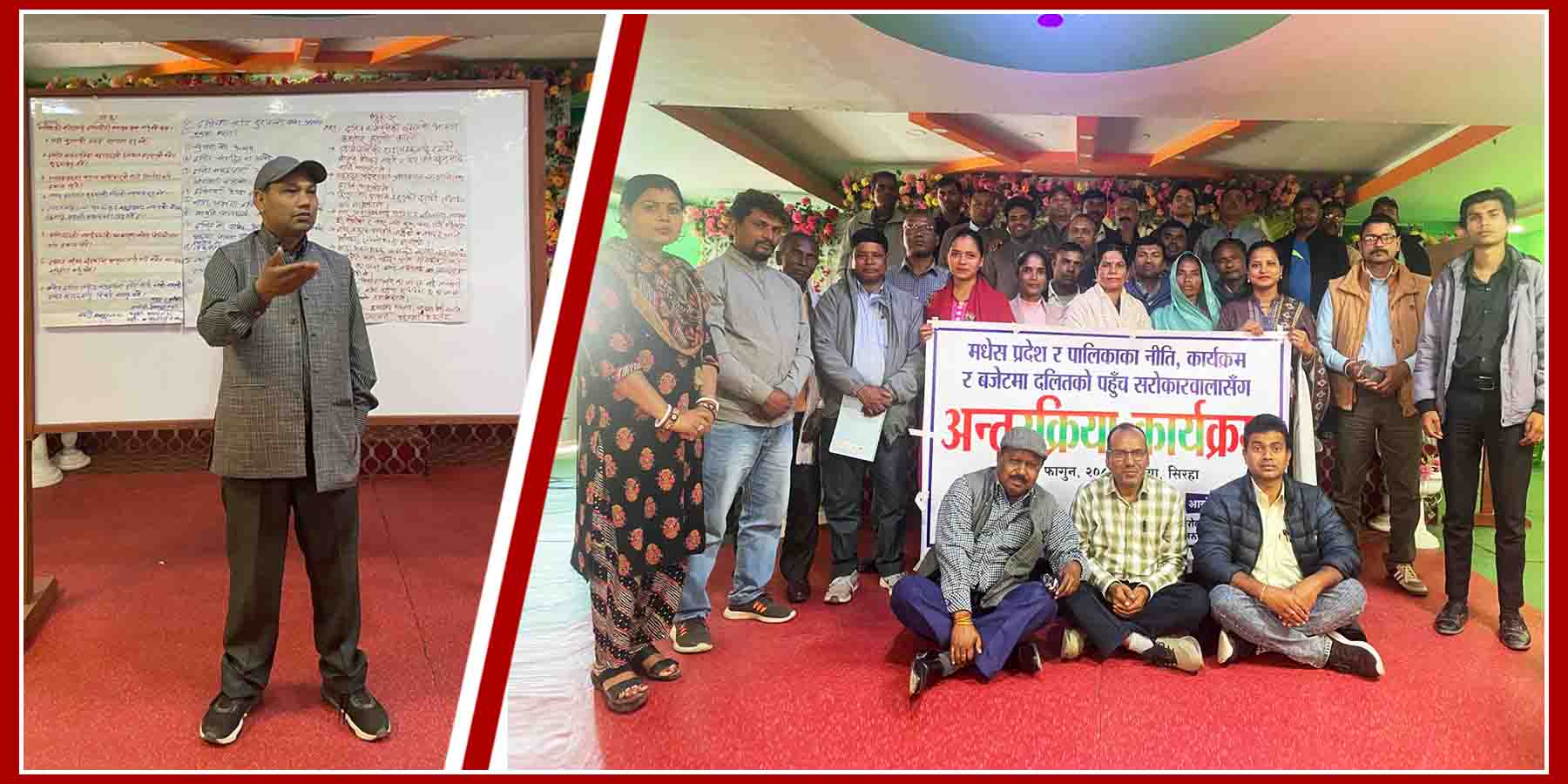
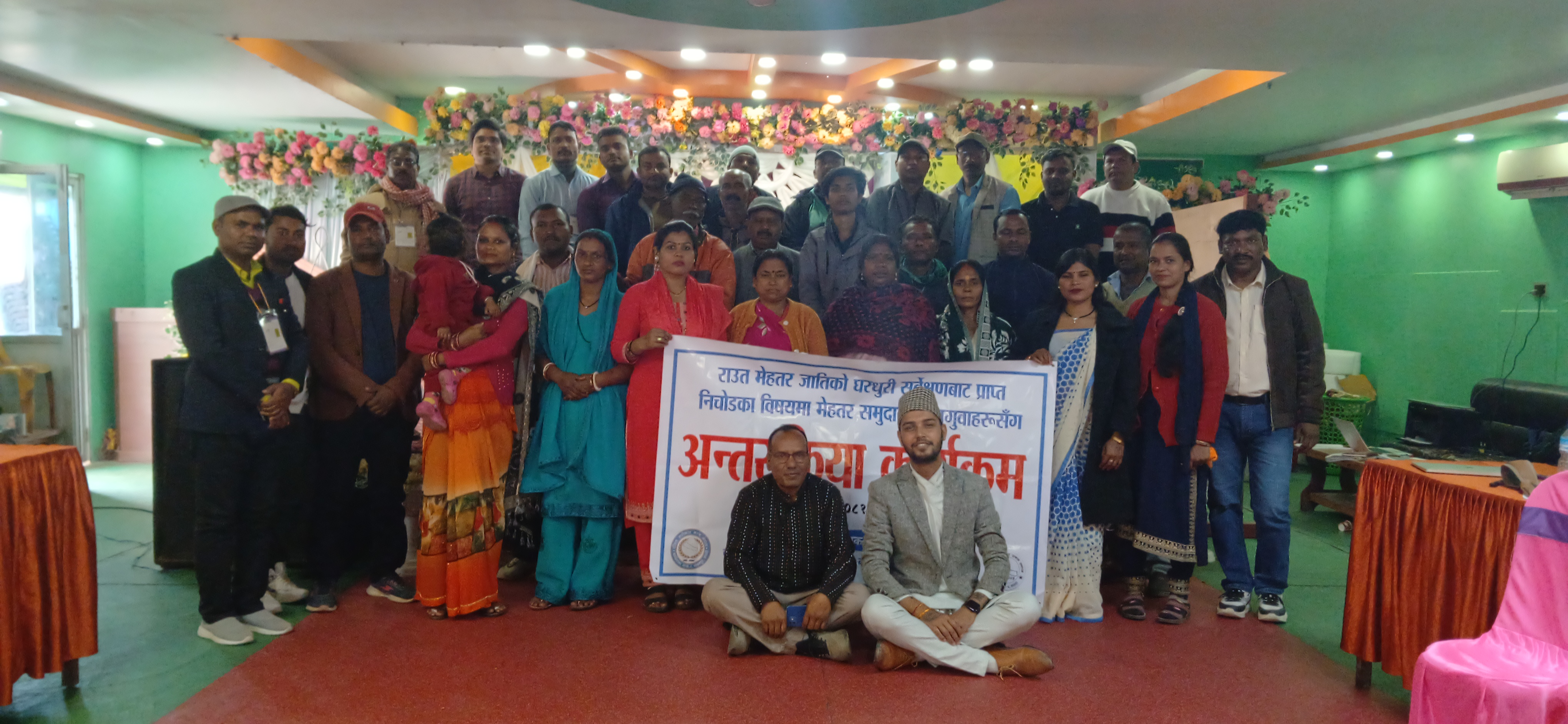

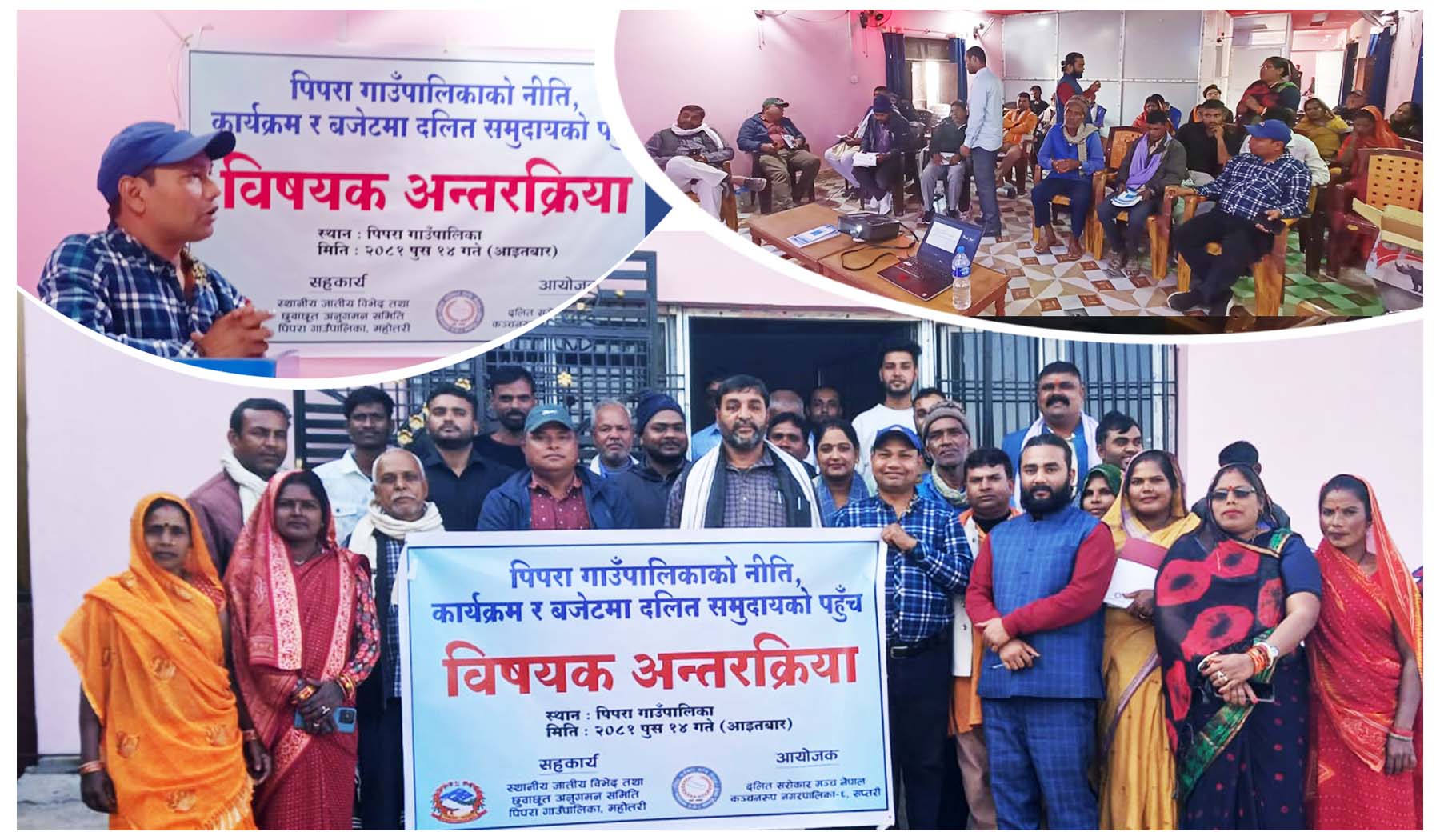
.jpeg)
